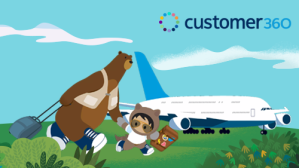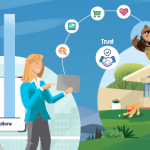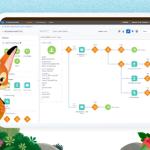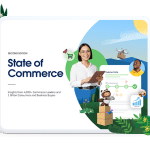When the entire world was confined to their homes for over two years, the travel industry leaders not just battled a slowdown, it was an existential crisis.. Revenge travel, a reflexive response to being cooped up in lockdown, was a global phenomenon, and India, too, experienced the same. Despite concerns over rising inflation and restrained spending patterns, travel is certainly the sunrise sector, and the Indian travel industry, bouncing back strongly, is expected to contribute almost INR 16 trillion to the GDP in 2022. The decade will likely see India’s travel and tourism GDP grow at an average of 7.8% annually.
Rising fuel costs, and inflation has definitely left travel companies in a tight spot, with many finding it hard to meet travellers’ expectations of amazing travel experience without a strain on their finances. But as ‘revenge travel’ has got customers spending more time and money on travel, marketers too, buoyed up by the uptake; are adapting their strategies to the changing trends in the travel industry.
What can companies offer to mitigate the impact of unavoidable inflationary pressure on travel industry and particularly, travellers? Personalisation has emerged as one of the biggest requirements and key differentiators for travellers in the post-pandemic era.
For one, digital and mobile channels are playing a crucial role in this recovery. According to research by an online travel agency, 62% of Indian travellers plan to book their next trip through online travel portals. The same research points that at least 80% of Indian travellers are willing to share personal information with travel partners in exchange for a more individualised travel experience. This proves that a one-size-fits-all strategy is no longer effective, and low-cost, 360-degree customisation is the key to an enhanced customer experience in a resurgent travel industry.
Redefining customer experience through customisation: An imperative for the travel industry
Personalisation is a key strategic tool to help travel companies connect with their customers on an emotional level. For travel companies and tour operators, this means that the usual method of creating standard itineraries for every destination will no longer work. Operators will need to focus on creating highly customised domestic and international travel plans that take into account travel history, family structure, travel budgets and so on.
For example, a trip to Singapore for a family with kids must include more child-friendly spots that offer affordable, safe, and fun engagement for children, while giving their parents a chance to enjoy their holiday as well. On the other hand, for a group looking to undertake an adventurous biking tour in Leh, the plan can include more offbeat places that are accessible only by bikes.
A guide to offering 360° customised travel experiences
To achieve this level of customised travel messaging, travel companies must focus on a variety of aspects.
1. Start by learning more about customers
Who is your customer today? What destinations are they looking for? What are their specific requirements related to affordability, location, and other deciding factors?
As a travel company, first focus on audience segmentation. Next, concentrate your efforts on prospects who are most likely to convert. You can leverage AI- and ML-enabled recommendation tools that give you an insider view on browsing habits, past vacation destinations, demographics, location, and even abandoned/cancelled bookings. Use these insights to create customised offers for your customers.
Using Einstein, a travel company can instantly customise search and category pages in response to every action of a customer, even on mobile devices.
2. Create relevant, personalised content
What does the customer need to know? Where do they want to view this information?
A travel agency looking to stand out in a crowded marketplace must address these questions by providing potential customers with the most relevant information they need through the channels they prefer. Such targeted content improves the user experience and reduces the volume of generic promotional content that potential customers simply ignore and move on.
Agencies can leverage targeted SEO and content marketing methods such as blogs, newsletters, emails and mobile in-app recommendations. For instance, think about a newlywed couple who purchased tickets to Bali for their honeymoon using your website. You can send them customised pre-departure emails containing names and details of must-see locations in Bali. Once they have arrived at their destination, your mobile app can provide suggestions for blogs that feature restaurant reviews of highly-rated eating joints in their place of stay. These small steps enable you to engage with the customer at every stage of their journey and build a strong relationship with them.
3. Leverage smart marketing automation
How quickly can you provide customers with the information they are looking for?
Suppose that a customer has made the necessary bookings for a relaxing holiday using your web portal. However, they are unsure about what they need to pack. While a Google search might provide the info they need, a chatbot on your site asking if they need any more information about their chosen experience would be a nice touch.
There are multiple other uses of smart automation. From automated travel software (that can quickly provide customised quotes to customers) to AI-enabled recommendation engines (that offer hyper-personalised suggestions based on customer needs), automation can be used to truly redefine the customer experience at all stages.
Travel companies can also automate feedback channels and gather data about what worked for the customer and what didn’t. While this will help them refine their future efforts, it has the added advantage of assuring customers that their preferences are respected by travel companies.
4. Use customer data to provide quality customer service
Lastly, how do you provide a pleasant and speedy experience to every customer who initiates a conversation with you?
To ensure personalised, hassle-free customer interactions, travel agencies must provide their agents with all the necessary customer data in a single place. This can help the agents provide customised resolutions to each and every customer in a short span of time. A CRM designed specifically for the travel and tourism industry, your entire company can work on one trusted platform with best-in-class apps that are easy to use and free to learn, united by a single, shared view of your customer data.
For instance, a CRM can transform the simple act of issuing a refund into an example of excellent customer service. If a long-time customer of your travel agency has to navigate multiple calls with different agents, answer the same questions over and over again and still wait for a long time to get a refund for a cancelled booking, there is a high chance they will never want to come back to you. An integrated CRM provides easy access to all customer-related information, including name, address, history of travel bookings and financial information. This allows your agents to provide them with the right information and in this case, issue a refund to the right account quickly.
Customer 360: Enabling cost-effective and tech-enabled personalised travel experiences to support the experience economy
Salesforce Customer 360 for travel and hospitality is a powerful and intuitive solution for the travel industry. Using this solution, tour operators and managers can incorporate personalisation in their messaging, make relevant recommendations based on location and interests, and share engaging material with their customers.
Here are some of the functional advantages of Salesforce 360 for travel and hospitality:
- Einstein-powered recommendations can help create customised journeys based on customer points of interest, preferences and past travel.
- Service Cloud, Salesforce’s customer service solution can help agents design delightful travel experiences and combine them with smarter, more individualised support. Enable push alerts on preferred channels to resolve service related issues quickly.
- Use a 360-degree view of customer profile, including itinerary, bookings and past travel, to enable contextual conversations.
- Increase customer engagement using customer communities. Create brand spaces that encourage communication and interaction among employees, partners and customers, and help companies curate content from knowledgeable travellers. This fosters customer loyalty and keeps visitors coming back.
Ready to offer a cost-effective and tech-enabled travel experience to ‘wow’ your customers?
Check out Salesforce Customer 360 for travel and hospitality.




























